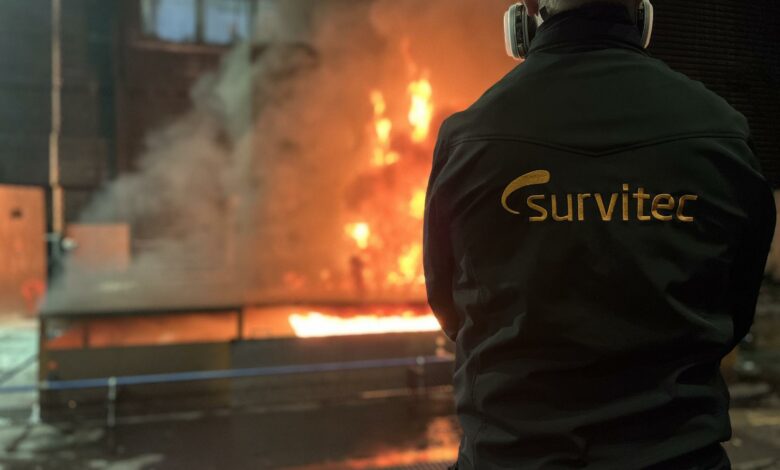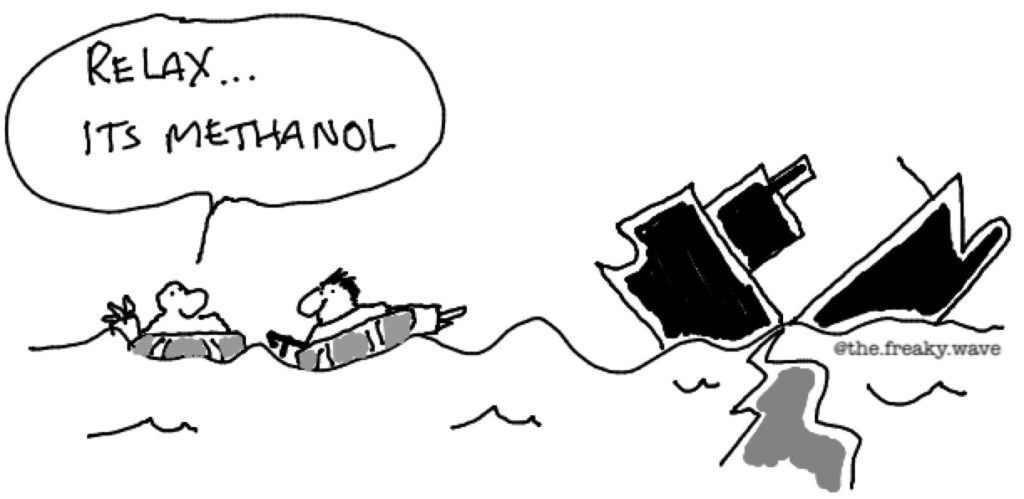New firefighting techniques needed for incoming methanol-powered fleet

A new fire safety study by survival technology solutions provider Survitec has revealed that existing fire-fighting methods used to extinguish machinery space spray and pool fires on conventionally fuelled vessels are inadequate when dealing with methanol-based fires.
This follows extensive comparative fire tests on dual-fuel marine engines using diesel oil and methanol, carried out amid growing interest in methanol as an alternative marine fuel.
Latest data from Clarksons Research shows the methanol capable orderbook has doubled year-on-year to 229 vessels of 20.4m gt, surpassing LNG in terms of growth as shipping’s current go-to alternative fuel.
“Our tests confirm that traditional water mist fire suppression mechanisms do not perform as expected on methanol pool fires and methanol spray fires. A completely different approach is required if these ships are to remain safe,” said Michal Sadzynski, product manager, water mist systems at Survitec.
Methanol is a methyl alcohol (CH3OH) that burns in a completely different way than hydrocarbon fuels and has a much lower flashpoint of 12°C. However, while there are established fire safety regulations and testing standards for diesel fuels, clear test protocols for alcohol-based fuels such as methanol and ethanol have yet to be developed.
“We believe this is a high-risk situation that needs immediate action,” stressed Sadzynski. “Methanol fires are far more aggressive than fires involving traditional hydrocarbon fuels. Methanol fires have different physicochemical properties and so they cannot be extinguished as easily or with the same approach.”
The Survitec tests found that while water mist systems are highly effective in absorbing heat and displacing oxygen on diesel fires, they do not produce the same results on methanol fires.
“We had to completely rethink nozzle placement, spacing and other factors to make water mist suppression effective on methanol. For instance, the range for nozzle installation height is much lower than that needed to put out a diesel fire,” Sadzynski said.
This finding indicates that if existing vessels are retrofitted to run on methanol, they would need to overhaul and redesign their fixed fire-fighting arrangement completely.
For bilge areas, statutory rules formulated in IMO MSC.1/Circ.1621 establish a requirement for an approved alcohol-resistant foam system for ships running on methanol. For the first time, a fixed, low expansion foam system is mandatory under the rules when it comes to protecting machinery space bilges.

